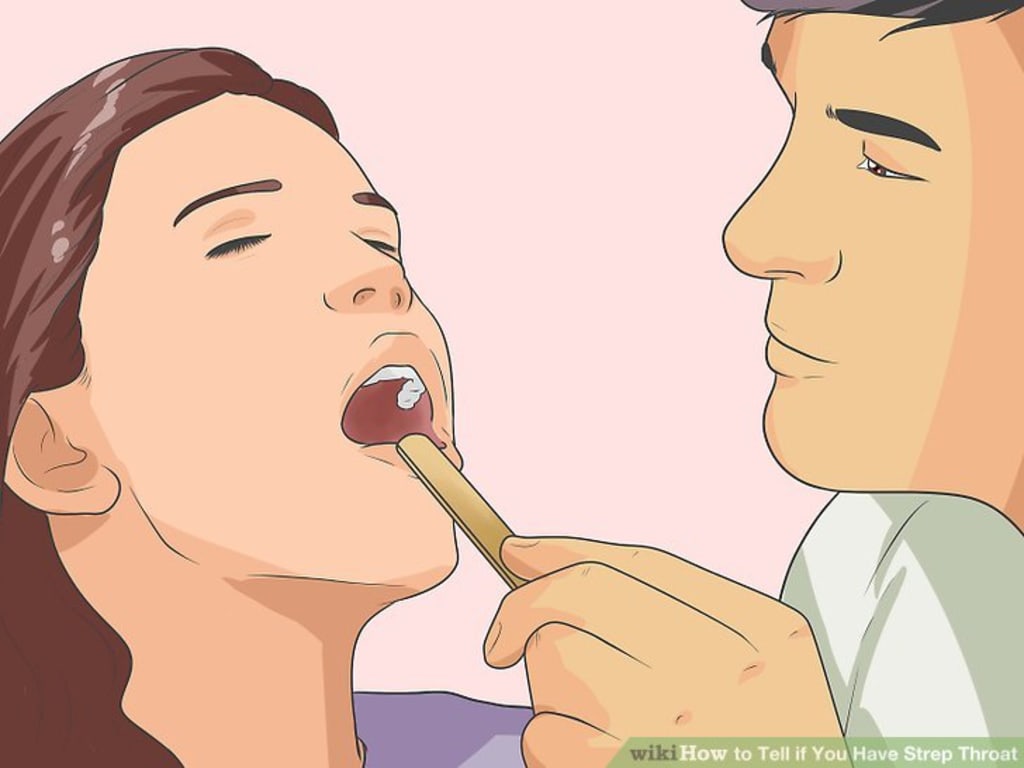How To Survive Tonsillectomy
Learning How to Handle the First Few Days Post-Op

A tonsillectomy is a major surgery that is done to remove the tonsils. This surgery is done for many reasons, but it is usually completed for two main reasons, although there are reasons other than the main two. These are due to constant infection, and for sleep apnea that disrupts sleep patterns. I know someone who had theirs removed due to a growth on one their tonsils, causing them to remove both tonsils.
Tonsils are usually taken out in youth, usually older than the age of 3 so that there are not any more risk for complications. Sometimes tonsil removal is necessary before the age of three, but still, it is a very rare occurrence. Despite the fact that many get their tonsils removed in early childhood, there are still some of us who undergo this surgery in our teen and adult lives. Through this article, I am going to explain my journey through the recovery, which will hopefully make yours a little easier.
For the most part, I am a very healthy person. I rarely get sick, but in the past four years, I found myself constantly having strep throat, tonsillitis, and just a sore throat. Also, I found my tonsils swelling up for no reason. I had been in and out of the doctors, and on many different antibiotics to try to get this to stop. and although the medicine made me feel better, often times, usually about a month later, I found myself right back at where I began. We had talked with my family doctor about getting them removed, especially before I started college, but the doctor always refused and said something along the lines of, "It would be unnecessary, and I do not want to put you through something that would be unnecessary for you to go through."
A few months after I turned 18, my mother and I went to see my Otorhinolaryngology (ear, nose, and throat specialist) and he heard what I had been going through for a few years, and agreed that my tonsils needed to come out. He warned me and said to me, "The older you are when this procedure is done, the worse the recovery is." I had known that to be true. I had two friends who were my age who also had their tonsils removed months before, so I knew what to expect. In the week preceding my surgery, I had to go get blood tests done at the hospital in which I would be having my surgery at. The test was just making sure that I did not have any infections and checking my blood type, and things of that nature. This is typical of all surgeries, so do not be alarmed if they ask you to do this.
Again, this is a common pre-surgical thing to be done, but the night before the surgery, you are not allowed to eat or drink after midnight. Now me being the nervous person I am, did not get sleep that night. I was feeling the adrenaline, nerves, and anxiety that comes before surgery, so this was very difficult for me to follow through with, but I survived the no food or drink rule.
The morning of the surgery my mom drove to the hospital, and things moved rather quickly. I got right in to take my urine pregnancy test, which is done for all females above a certain age, and then I was moved to my room. Once in the room, I went through the pre-op questions, which were questions mostly regarding medical history. Throughout the questions, the surgeon came in and talked about the procedure with my parents and me, and the anesthesiologist came in and talked about the medicine that he'd be administering. After this, I do not really remember much. I remember being wheeled to the operating room, and I remember seeing it, but then I only remember waking up.
Waking up is different for everyone. For me, I wake up from anesthesia, I cry, a lot. The first time I woke up from surgery, I knew why I was crying. I had an allergic reaction to one of the medicines that I was given while I was falling asleep. This time, I learned that I just have a tendency to cry when I wake up from surgery. I was urged to keep quiet as it would just hurt my throat more when the anesthesia wore all the way off. I was given antinausea medicine through a patch that was placed on my chest. The procedure took about 45 minutes, but I was told I was asleep for about a little over an hour.
Once I was upstairs in my room, my family was allowed to come back to see me. Initially, I felt a lot of pain, and I was unable to talk or swallow. But it is very important to drink water. Your throat during recovery cannot be dry, and it can lead to dehydration, infection, or bleeding, which can and will you back into the hospital. I give major props to my boyfriend for putting up with my crying constantly. Also, I found it easier to swallow when I was squeezing his hand while I swallowed. I stayed in the hospital pretty much all day, and I got released around eight p.m. Before I got released, there were a few things that I was forced to do before I was able to be discharged; I had to eat a popsicle, and I had to have my throat checked by the surgeon. I had taken my medicine twice, but it was very difficult, and it burned a lot. I cried a lot while I was taking my medicine, and it took two people to help me take my medicine. I found it easier to take some of it, and then eat a few ice chips, or a bite of popsicle to cool down my throat before taking more.
The days following the surgery have been ok. Every day I find something more I can do. The day after the surgery, I was having trouble taking my medicine still, but I found it easier to take with the ice and popsicles. I'm writing the at day five post-op, but I still find myself to be pretty resourceful. I, unlike most cases in today's society, had stitches to close my wounds, so if you had your blood vessels cauterized, I am going to be experiencing a little bit of a difference in recovery and risks. Another thing that made me uncomfortable during the first few days was being able to feel one of my stitches and having my stitches touch my uvula, which made it even more difficult and uncomfortable to swallow.
Ever since the day of the surgery, ice packs have been my best friend. Wrapping around them around my neck and keeping the ice on my throat was something that kept my swelling and pain levels low. Soon, you'll depend on them less, but I recommend falling asleep with them on because you'll feel a lot better if you do. Just last night, I went to bed without an ice pack, and I woke up in the middle of the night in excruciating pain, but after applying an ice pack, I was able to fall back asleep, and I woke up this morning feeling a lot better.
For a few days, try to avoid hot foods, as the wounds in your mouth are still healing. But there are a number of foods that you can eat while you are recovering. However, try to stay away from foods with acid, as that can and will burn your raw, healing throat. Below, I listed some of the foods that I have been able to eat. There are others, and I will include them in the list separately.
Foods I was able to eat and when
- Popsicles (Day of surgery)
- Water (Day of surgery)
- Ice cream (Day 2)
- Mashed potatoes (Day 2)
- Cheesy potatoes (Day 3)
- Scrambled eggs (Day 3, was difficult, but it was ok)
- Ramen noodles (Day 4)
- Protein shakes (Day 4)
Other foods you are able to eat (When you feel you are ready to)
- Pasta (No tomato sauce)
- Oatmeal
- Soggy cereal (Completely soaked)
- Soups
- Bread
- Applesauce
- Yogurt
Some people say that they were able to pancakes. (Without sugary syrup.)
Thank you so much for letting me share my experience with you, and I hope that my experience and advice will allow you to have a fast, and enjoyable recovery, and I hope that you'll be back to normal soon!
About the Creator
Nicole Tye
Hello! My name is Nikki, and I am in college now. I am a pre-medicine major, but I am also an aspiring writer. I write on Wattpad, please follow and give your feedback! @NikkiTye Also, follow my instagram @softball400






Comments
There are no comments for this story
Be the first to respond and start the conversation.